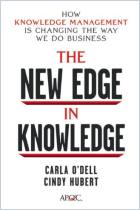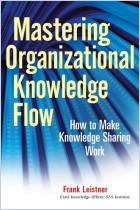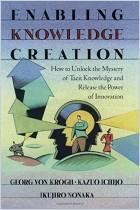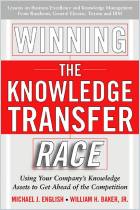
Recommendation
This book is a practical guide for anyone charged with implementing a knowledge management (KM) system. At first glance, some practitioners may think the book is too basic. They may assume that they already know everything, or that all they have to do is replicate what other firms are doing. Other readers may feel so overwhelmed with the task of knowledge management that they will welcome any advice. Business trainer Christee Gabour Atwood’s book can help knowledge management professionals on every level. She stresses the need for a customized system, built largely on the input of the employees who hold most of an organization’s knowledge. This quick, easy read offers insightful suggestions and lists of tips about every step of implementing a KM system. Even if this book serves you only as a review, getAbstract finds that its information is comprehensive. In fact, you could easily convert it to checklists to guide you through the KM process.
Summary
About the Author
Christee Gabour Atwood is a speaker, trainer and knowledge management adviser.
















Comment on this summary or Démarrer une discussion